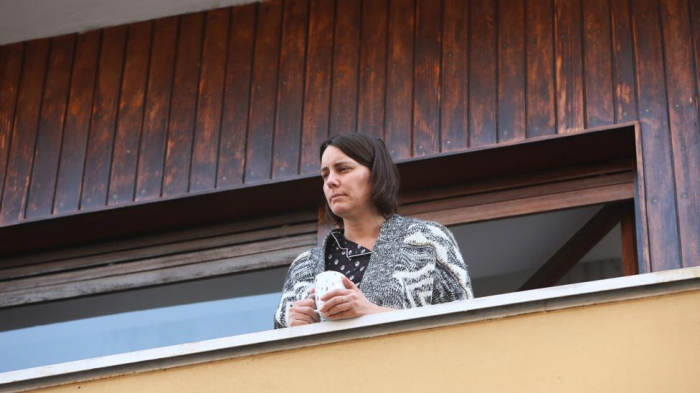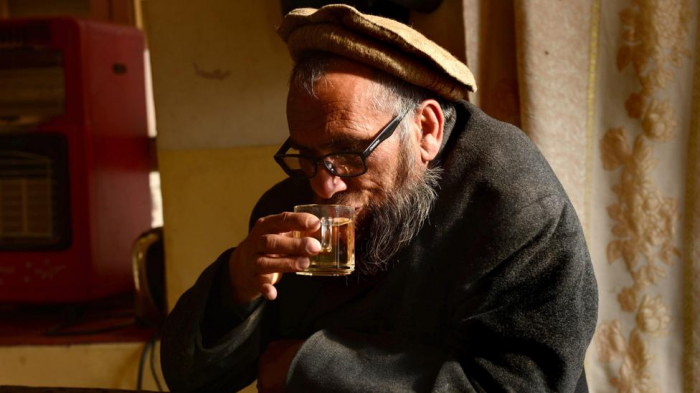But while many people might seek out a cup of coffee, a mug of tea or a hot toddie to help them in these difficult times, one thing a hot drink won’t do is protect you from Covid-19.
There have been many claims to the contrary circulating widely on social media and in private messaging apps – one of the many fake pieces of health advice that are being shared. One claim that hot water would be enough to protect people from the virus even led the United Nations Children’s Fund (Unicef) to issue a statement to say that it had not come from them.
“There is no evidence that hot drinks will protect against viral infections,” says Ron Eccles, an expert in respiratory diseases at Cardiff University in the UK and former director of the Common Cold Centre.
Eccles has conducted research in the past on the apparent effects of drinking hot liquids when suffering from cold and flu. He found that while a hot drink might bring some relief from the symptoms of a cold, it was likely partly due to the effect it had on promoting secretions of saliva and mucus in the mouth and nose, which soothe inflammation. But he also concluded that there was likely to be a strong placebo effect involved too.

While a hot drink might not protect you from Covid-19, maintaining good social distancing measures can (Credit: Getty Images)
In the case of Sars-CoV-2, the coronavirus that causes the disease Covid-19, BBC Future has already examined how drinking water doesn’t offer any protection against the new coronavirus. The virus cannot simply be washed away by drinking water or gargling liquid regularly.
While it can enter the body through the nose and mouth in tiny droplets coughed out by other people who are infected, it primarily tends to infect cells of the respiratory tract. These cells carry an enzyme on their surface that the virus needs in order to get inside them.
Inhaling these droplets will transport them down towards the lungs – away from anywhere that can be reached by a mouthful of liquid.
Guzzling down hot liquid is unlikely to raise the temperature enough in your respiratory tract to kill any of the virus inside the cells there
Once inside the body, the virus also quickly gets inside the cells of its human host where it then slowly replicates itself, meaning it is also able to comfortably hide from any attempts to wash it away. Some initial studies have suggested it can take up to 30 hours from the first cells being infected, to the point where the virus bursts out to infect more cells.
Similarly, once inside our cells, the virus is protected from any extremes of temperature. The human body tends to sit at a comfortable 37C (98.6F), which is perfect for the virus to replicate and spread. Guzzling down hot liquid is unlikely to raise the temperature enough in your respiratory tract to kill any of the virus inside the cells there. It takes temperatures of 56C (132.8F) or higher to effectively kill the closely related coronavirus that causes Sars, although some tests have shown temperatures higher than 60-65C (140-149F) are needed. While no studies have yet been published on the virus that causes Covid-19 and its resistance to high temperatures, it is likely that it will be similar to other coronaviruses.
While you can use temperatures of 70C (158F) and above to kill the virus on food by cooking it, it is hot enough to scald human skin and cause injuries. (Read more about how long the coronavirus survives on surfaces and how to kill it.)

The temperatures needed to kill Covid-19 are high enough to scald us and cause serious injury (Credit: Getty Images)
It’s easy to see how climbing into a bath that hot, as some fake advice has suggested, would be hard to stand for long, and likely do more harm than good. Even if you could stay in water hot enough, it isn’t going to kill any of the virus already inside your body. This is because, regardless of how hot you are on the outside, your body works hard to keep its temperature inside at around 37C (98.6F). You are more likely to burn yourself and do serious harm than kill the virus.
Raising your core body temperature even to 40C (104F) can lead to severe heat stroke. Body temperatures higher than this can lead to death unless treated quickly.
Some misleading claims also state that compounds in tea can have a protective effect against the Covid-19 virus, but there is no scientific evidence to support this, as the BBC has reported elsewhere.
So that hot drink may be soothing. But as ever, the best way to protect yourself from the Covid-19 virus is to abide by social distancing measures, wash your hands with soap and water after touching potentially infected surfaces and follow the most up-to-date official medical advice.
BBC Future
More about: coronavirus
















































